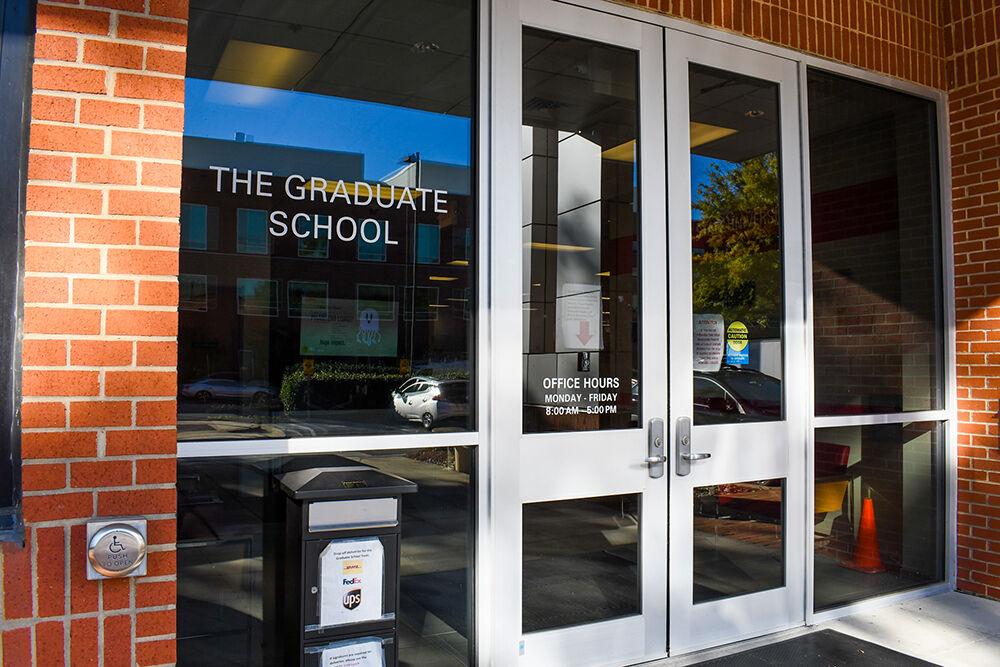With many students currently navigating the graduate school application process, David Shafer, assistant dean of the Graduate School, and Courtney Hughes, director of the University Fellowships Office, share tips and resources for those currently applying and those thinking about applying in the future.
“Whether you’re thinking about graduate school, or a job, a gap year or a service year, you want to give yourself time to not feel rushed when you’re making a decision,” Hughes said. “Also, throughout your junior year, you are starting to ask bigger questions about, ‘Why am I studying what I’m studying? How can I make a difference?’ And as you’re looking at graduate programs across the United States, some of those questions, you need to ask the graduate programs as well.”
Hughes said junior year is the best time to prepare a list of graduate schools, narrowing down to about six options. She said no more than six schools is recommended because of the expensive application fees and the increased difficulty of tailoring your application to each program.
Application components generally consist of an online application form, transcripts, letters of recommendation, a statement of purpose, a resume/CV and potentially Graduate Record Examinations (GRE) scores.
“During the tail end of spring and into the summer between your junior and senior year, plan to take the GRE,” Hughes said. “While the GRE is not required of every single program, it is still the bar that many institutions use to consider admissions. And you will want to have time to take it a second time if you didn’t like your score on the first one.”
Hughes said students should talk to any possible recommenders by August before applications are due and ask if they can write a strong recommendation.
Graduate school application deadlines vary from program to program, according to Hughes. But students are generally encouraged to submit in October, November or December. Shafer said students can hear back around or before April, but this varies greatly depending on the program.
“First semester of your senior year is when you’re applying to everything,” Hughes said. “You’re applying to potentially external fellowships that will come with you to graduate school, and you’re also applying to graduate programs.”
Shafer said funding for a Ph.D. program generally comes in the form of a teaching assistantship, research assistantship or fellowship. Fellowship applications are often due prior to applying to graduate school, at the same time, or before knowing you have been admitted into graduate school. He said nationally competitive portable fellowships offered by outside granting agencies or foundations can be applied to any university to which the student is admitted or enrolled. Hughes said students can search for fellowships using resources on the University Fellowships Office website.
“Fellowships are non-service awards, so you’re not being compensated for work,” Shafer said. “Instead, you’re going to graduate school full time and you’re getting paid to do that. Very often, students will have a combination of those throughout their graduate degree programs.”
Hughes said the Center for Career Development, Writing Center, University Fellowships Office and academic advisors are great ways to get feedback on graduate school and fellowship application components. She said the University Fellowships Office helps any member of the Wolfpack, including graduates at any point after graduation.
For admissions questions, Hughes recommended that students reach out to the program’s graduate admissions office.
“This is not a solo endeavor,” Hughes said. “If you’re applying, it’s not just you putting together your documents, and then you submitting with no help from anybody else. … It’s the definition of a group project. You can get all your stuff done on time, but [you have to] communicate well with those other stakeholders: letters of recommendation, securing official transcripts, gaining institutional endorsement for some fellowships.”
In addition to getting feedback on written application components, Shafer strongly recommended making preliminary contact with the faculty with whom the student would like to work, which can be done at any point as an undergraduate.
“When you apply to graduate school, it’s a very centralized application process, but it’s a very decentralized decision making process,” Shafer said. “When you apply for an undergrad degree, you submit your application to a central office, and they make the decision. When you submit an application for a graduate degree, it goes to the graduate school, but then we send out your information to the faculty and the graduate programs. And they’re really the ones that make the recommendations as to whether or not to admit the students.”
Shafer said students’ applications should focus on two things: the potential to succeed in graduate school and a good match with the graduate program.
“Make sure that you are genuinely enthusiastic and excited about whatever it is that you’re applying to, be it a job, graduate school, a fellowship, an apprenticeship, an assistantship,” Hughes said. “There are many ways, technically, to make an application perfect or compelling. But the one thing I cannot manufacture is joy and enthusiasm. … If I’m reading nearly identical essays, I can absolutely tell the difference between the person that really actually wants to do the thing, whatever the thing is, and a person who just thinks it’s a really cool opportunity, but maybe whose heart isn’t fully in it.”













